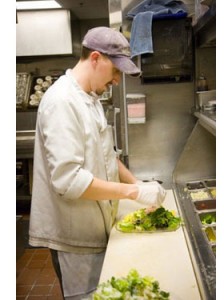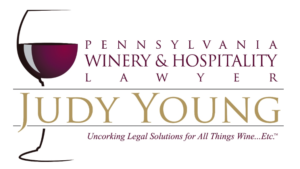Are Pennsylvania Wineries and Restaurants Contributing to Food Borne Illnesses?
Is your restaurant or winery contributing to food borne illnesses? Let’s hope not. But  summertime is as good a time as any to discuss ways to avoid food liability claims against your winery, restaurant, or hospitality based business. Ingesting foods that have been contaminated by bacteria, viruses, parasites or chemicals can indeed cause food borne illnesses.
summertime is as good a time as any to discuss ways to avoid food liability claims against your winery, restaurant, or hospitality based business. Ingesting foods that have been contaminated by bacteria, viruses, parasites or chemicals can indeed cause food borne illnesses.
If your establishment engages in the preparation, service or sale of food items, safe food handling helps to avoid legal liability from customers that are imbibing and dining at your establishment. Mitigating such claims is of major importance to the success of your business and brand.
As often evidenced by the Center for Disease Control and Prevention (CDC), incidents of food borne disease often emerges as a result of improper food handling.
To prevent these hazards, you will want to exercise appropriate food safety procedures for your winery, restaurant, or hospitality based business. Employing these tips will help you and your employees avoid complex food liability litigation while maintaining best practices for food safety as advocated by your state and local public health departments.
Top Food Safety Tips To Remember:
Handwashing: Wash hands frequently and practice good hygiene.
Food Storage and Temperature Control: Properly cook and store all foods at proper temperatures. Cold foods should be refrigerated at or below 40 degrees Fahrenheit. Keeping foods cold slows bacterial growth. Hot foods should be cooked at or above 140 degrees Fahrenheit. Keep cooked food hot until serving. Bacteria growth increases with food remaining at room temperature longer than two hours. Do not re-freeze food.
Sanitation: Use sanitary food and water sources. Replace/wash dish towels and sponges to prevent the spread of harmful bacteria.
Avoid Cross Contamination: Practice proper personal hygiene to safeguard against the transfer of harmful bacteria. Avoid smoking, eating, drinking, coughing and sneezing in the food preparation areas. Keep your ill employees at home.
Equipment: Keep all equipment clean, assigning food and equipment sink protections.
Vermin: Protect against flies, rodents and roaches.
By utilizing best practices in food sanitation and workplace safety, you’ll be assuring your customers that your winery, restaurant, and/or hospitality based business takes food safety seriously.
Now, that you have these tips under your belt, do have a great summer and get your food and drink on safely!
